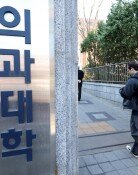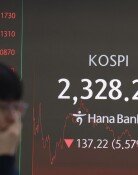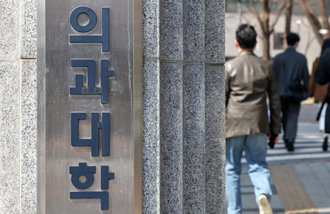No Economic Efficiency of Saemankeum Tideland Reclamation Project
No Economic Efficiency of Saemankeum Tideland Reclamation Project
Posted May. 09, 2001 08:31,
Experts raised the problem of economic inefficiency of the Saemankeum Tideland Reclamation Project when the additional expenses to this project was considered.
Pyo Hui-Dong, Economics Ph.D. in Korea Maritime Institute, reported in his recent article, `Reevaluation of the economic analysis of the Saemankeum Tideland Reclamation Project,` that giving up the whole 1 trillion won, which had been put into this project, would help reduce the loss of national economy. Dr. Pyo will present this paper at the seminar held by Korea Press Foundation, `Saemankeum and Shoreland,` on May 10.
According to this report, the real benefit will not exceed even with the future expenses considered. Dr. Pyo criticizes the Saemankeum joint civic-government investigation team which analyzed that the real benefit would exceed the expenses by at least 25 percent. Pyo points out that the team wrongly asserted the economical validity of the project by doubly summing up the benefits.
Pyo also mentions that, according to economic theories, effects of the territorial expansion and the food security can not be considered in the economic analysis. And even when those supplementary effects are admitted, the joint team did not divide the value of food security by the years, eventually magnifying 13 times the possible annual benefit. The team also did not account for the water and air pollutions by the agricultural production. And the joint team exaggerated the effect of territorial expansion on the unrealistic assumption of the 100 percent conversion of the agricultural land.
This statement of Dr. Pyo repudiates the theories that insist on the enforcement of this impractical plan for already invested money.
Im Jae-Hwan, professor of Agricultural economics, Chungnam National University, who took charge in the subcommittee of economic efficiency of the joint team, opposed to the Pyo’s affirmation. Prof. Im argued that the team used internationally certified data and, for analysis of the effect of territorial expansion, the joint team applied the principles that was used by Japanese Tideland reclamation projects. He also stated that the real benefit exceeds 25 percents over the expenses in the worst scenario.
Headline News
- Ruling, opposition parties to set up their election committees
- Financial authorities set to support auto industry
- LG's Arizona plant to produce cylindrical batteries from next year
- Yoon removed from office by unanimous court decision
- Constitutional Court mentions responsibility of both Yoon and National Assembly







